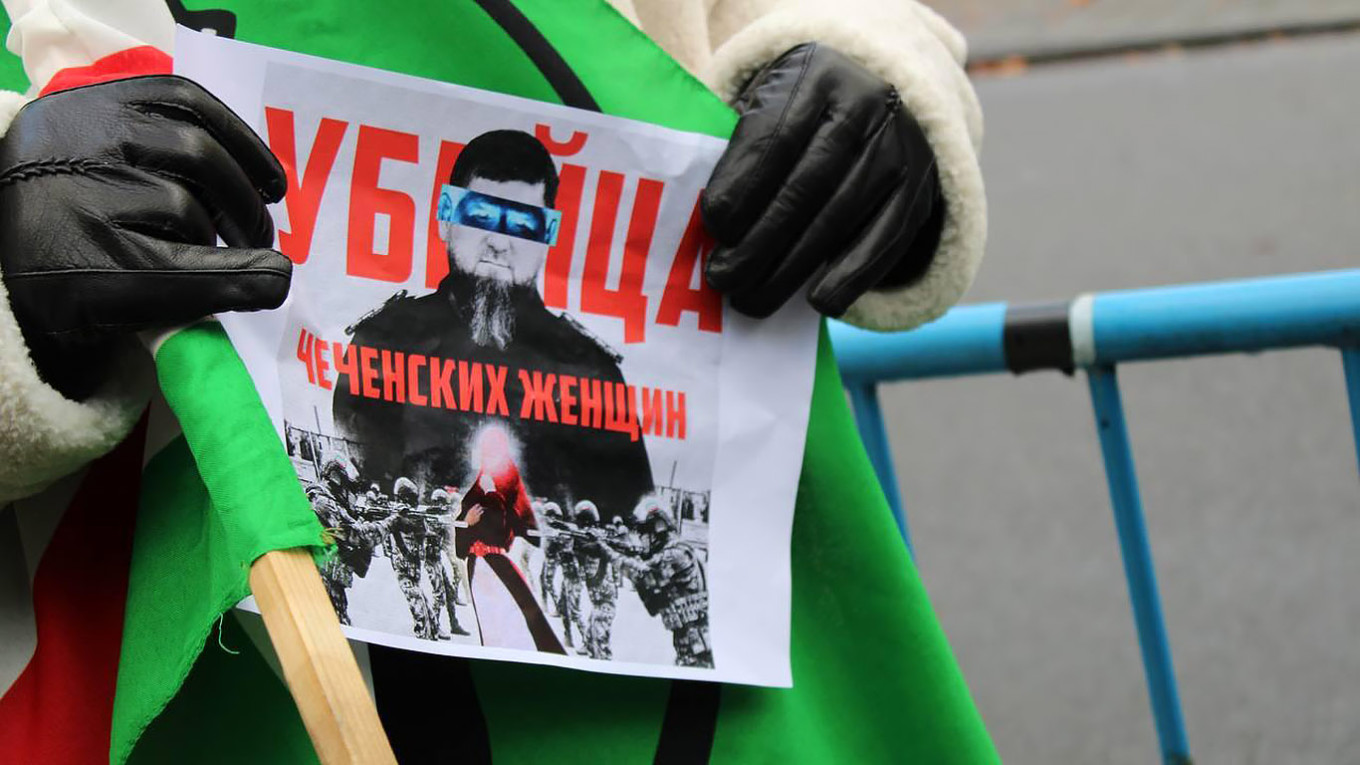
People are afraid to go out to protest.
They are afraid to show their faces, afraid to speak out publicly.
Both the Russian and the Kadyrov regimes exploit this, said Chechen-born activist Fatima Suleymanova.Thats why it was very important for me to come out to protest, speak out and show my face even though I also have family inside Chechnya, Suleymanova, a member of the France-based Chechen liberation movement United Force, told The Moscow Times.On Saturday, Suleymanova co-organized an all-women rally near the Russian Embassy in Belgium to spotlight Chechen leader Ramzan Kadyrov's fight against defenseless women as well as the many cases of women kidnapped or imprisoned in the North Caucasus republic.The protest's organizers say their primary motivation behind the protest was fresh criminal charges against Zarema Musaeva, the imprisoned mother of prominent Kadyrov critics.Musaeva, the mother of activists Abubakar, Baysangur and Ibragim Yangulbaev, was violently detained in the western Russian city of Nizhny Novgorod and forcibly taken to Chechnya in January 2022.She was subsequently sentenced to five years in prison on charges of fraud and assault on a police officer accusations she strongly denied.Loujaine LaamalLast month, the Crew Against Torture rights group announced that Musaeva, 55, could face up to five additional years in prison on charges of disrupting prison operations.Musaeva is one of only five individuals from Chechnya to be designated as a political prisoner by the veteran human rights group Memorial.Chechnya is often singled out as the most difficult Russian region for rights defenders to work.
While kidnappings, torture and murder are regularly committed by authorities, they remain underreported by victims and their relatives who fear publicizing the cases could backfire into more intense repressions against an entire clan.As a result, the real number of political prisoners in the republic could be in the dozens or even hundreds.Loujaine LaamalWe wanted to show the unity of women against Kadyrov because there are so many instances of oppression specifically targeting women, said Safiya, afellow exiled Chechen activist who co-organized the protest with Suleymanova and asked to withhold her surname for safety reasons.Also, many of my friends were either not allowed to attend mixed protests by their fathers or husbands or didnt want to go to spaces where men were present," she told The Moscow Times.Despite the precautions, only 10 of the expected 50 participants showed up near the Russian Embassy in the Brussels suburb of Uccle on a gloomy Saturday afternoon.The meager turnout is a testament to the fact that many members of the Chechen diaspora are fearful of the regime they seemingly escaped, but also skeptical of what can realistically be achieved through protesting, according to Suleymanova.There was a sort of propaganda campaign on [Chechen] Telegram channels ahead of the event, which claimed that there is no point in going to such events.
Perhaps this is the result of that, said Suleymanova.Loujaine LaamalYet both Suleymanova and Safiya were firm in their belief that protests staged by the Chechen diaspora in Western Europe which numbersaround 180,000 are not in vain, no matter how small.I moved here two years ago and was surprised by the passive attitude [of other immigrants].
Many people are truly absorbed in their work and their own lives; they dont want to get involved [in politics] or simply dont care.
Many are afraid of something, said 22-year-old Safiya.Were not doing this to prove something to Europeans, she said.
We are doing this to show [Chechen] women in trouble that they are not alone.
We are doing this to show unity.

 16
16







